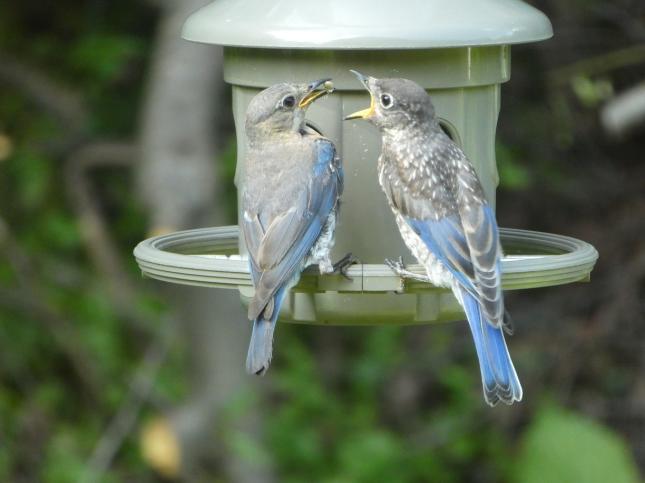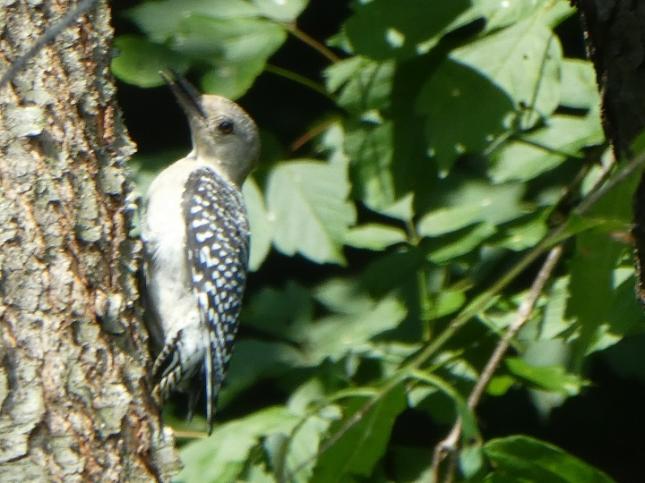Summertime Feeding

Winter may be for feeding the flocks of birds but summer is for feeding the families of birds.
Throughout the sultry days the adults will bring their offspring bounties of insects, seed and fruit. All foods hold varying amounts of water, protein, and fat for rapidly growing young. Our second brood of bluebirds are being fed live mealworms and Bark Butter Bits. Both the male and female Bluebird fly off with a beak full. The Purple Martins scour the seamless blue seeking dragonflies and butterflies for their chirrupy young. Robins, Catbirds, and Mockingbirds can be observed plucking the bountiful canes of erubescent raspberries and branches of aubergine mulberries. In turn, their scat may pollinate a future fruit patch or tree. In the spring the noisiest birds were those singing for love or proclaiming territory. Now the clamoring you hear is the constant chirps of the babies wanting to be fed. When a bird is in a nest it knows not how to get food or where to find food. For several weeks after fledging the young follow the adults about and learn how to find food. The parents will demonstrate how to eat naturally and at your feeders. You may witness a fluttery, twittery, fledgling perched atop a pile of seed begging to be fed.
The parents will pick up a seed, a morsel of suet, or a mealworm and place it in the noisy one’s beak. Young birds can be identified by their lack of coloring, disheveled appearance, and incessant begging. Juvenile birds are generally not born with adult coloration. They will be drab overall and lack the striking marks of an adult. For instance young Cardinals feathering and beak are brownish as opposed to red and orange in color. Blue Jay juveniles may lack the full neck collar of adults. We had a recently fledged Red-bellied Woodpecker visit our feeders yesterday. The bird’s pate was pale gray with no red at all. The young Downy Woodpeckers are so cute. Their first tufts of feathers stick out like someone to took a towel to his head. It was once said that you shouldn’t feed birds in the summer as they can find food naturally and you don’t wish for them to become dependent on your feeders. While it’s true they can find food naturally, I believe the next avian generations are being taught where a reliable food source can be found. My bird feeders.

Juvenile Red-bellied Woodpecker

